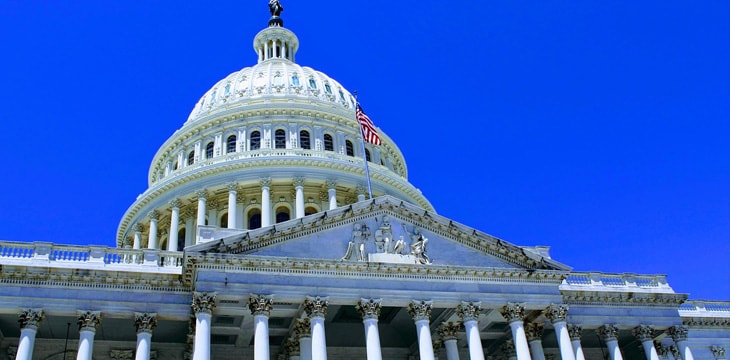|
Getting your Trinity Audio player ready...
|
New legislation governing the rules around blockchain and digital currency passed the U.S. House of Representatives this week, and will now be considered by the Senate before eventually becoming law.
The bills arising from the Energy and Commerce Committee passed votes in the House on Tuesday afternoon, and will now be scrutinized by Senators ahead of their entry on the statute books.
The laws take the form of an update to the Consumer Safety Technology Act, which encompasses both the Blockchain Innovation Act and the Digital Taxonomy Act. The new laws seek to introduce greater certainty in the legal environment around blockchain technology.
The Digital Taxonomy Act introduces definitions of key terms to U.S. law for the first time, including “digital asset” and “digital unit.” The law also gives the Federal Trade Commission (FTC) oversight, tasked with preventing unfair practices.
The Blockchain Innovation Act creates a duty on the Federal Trade Commission to publish a report on the role of blockchain in consumer protection.
Congressman Darren Soto (D-FL), who authored both of the bills, welcomed their passage to the Senate, remarking on the duty of representatives to champion the development of the blockchain industries.
“As lawmakers, it’s our duty to ensure the United States continues to lead in blockchain technology.”
My bills, the Digital Taxonomy Act & the Blockchain Innovation Act, just passed the House incorporated into the Consumer Safety Technology Act. Here's to the untapped potential of #blockchain and government! https://t.co/Tz9pqK3fZ2
— Rep. Darren Soto (@RepDarrenSoto) September 29, 2020
The bills left the Energy and Commerce Committee in early September, and have been combined with legislation proposed by Rep. Jerry McNerney (D-CA) on the use of artificial intelligence technology in consumer safety applications.
The legislation comes at a time of an increasing push to regulation of blockchain and digital assets across the world, with governments keen to introduce a better standard of regulation and legal support for their emerging blockchain sectors.
The U.S. bills are the latest moves towards more comprehensively regulation for blockchain and digital assets in the country, at a time of increasing interest in blockchain tech.

 02-25-2026
02-25-2026 




